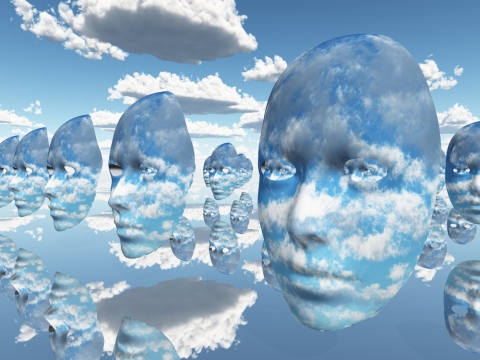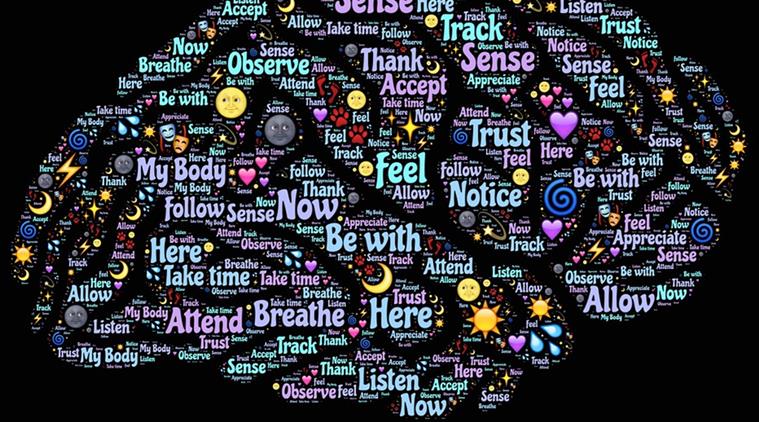Humans are complex creatures. The question is, do we accept being complicated as an immutable aspect of the human condition, or do we sustain the arduous task of being simple?
 It’s casuistry to use the fact of human complexity to rationalize an underlying acceptance and conformity to the status quo from which one has benefited. A good man or woman is not comfortable with complexity, but seeks and achieves an essential simplicity.
It’s casuistry to use the fact of human complexity to rationalize an underlying acceptance and conformity to the status quo from which one has benefited. A good man or woman is not comfortable with complexity, but seeks and achieves an essential simplicity.
A good person does not justify and rationalize complexity, in themselves and others, or hide behind it, or wear complexity as a badge of their humanness and tolerance.
One of the cleverest tricks smart people use to avoid seeing themselves simply as they are is to talk about how complicated people are. It’s a way of never having to fully face and remain with a fact about oneself such as jealousy, hatred or fear.
Academic and professional philosophers (a double oxymoron) often utter profound nonsense such as: “If we are more complicated than we like to think, perhaps others are more complicated than we like to think.”
Such statements border on the diabolical, because they seem so reasonable, even irrefutable, while being designed to entrap everyone in a worldview that values and upholds complexity over simplicity.
Say you’re a professor in a university. You’re expected, and expect yourself, to convey values of tolerance and understanding, especially if you’re a chair in religious philosophy. But when someone cuts you off in traffic and drives slowly in front of you, you don’t just beep your horn in a moment of anger, you lay on it for half a mile. So in actuality you’re just as petty and small as some guy who has lost his factory job and acts out with road rage.
Then, rather than simply face this fact, you tell a story about the incident, involving a confession of your failing. (Every ex-Catholic knows that confessing one’s sins at one level is the best way to hide deeper sins.)
At the same time you’re making your confession and expunging your sin publicly, you’re able to score pontifical points with students and others about ‘the stories we tell ourselves.’
Add another layer of complexity, involving guilt, and a vague unease in being comfortably self-satisfied while others suffer. So you invent a course about how “people living in comfortable circumstances often find our comfort at the expense of those who have sacrificed to make us so.”
This you call teaching. Altogether it adds up to enormous and almost impenetrable complexity, which you take as a given, because you have never learned how to look at yourself simply.
What does looking at oneself with simplicity mean? Is learning to be simple the way ahead, indeed the path to goodness and virtue?
The words ‘goodness’ and ‘virtue’ sound almost laughably archaic, so saturated with cynicism has post-modern culture become. But they are bedrock verities of human life, and a life well lived.
Here’s a prescription from a genuine religious philosopher:
“The perception, the total observation of jealousy or anger or whatever, is not a matter of time, but of giving complete attention, critical awareness, observing choicelessly, instantly, all things as they arise. Then there is freedom–not in future but now—from jealousy, anger, violence or any other habit. Time is not the way to freedom.”
Notice the radical difference in approach. The professor jesuitically justifies his rage by confessing to it and making a teachable narrative out of it, which upholds the ‘value’ of tolerating human complexity. The other approach points to the true meaning and value of simplicity and freedom.
Reducing life and living to the personal dimension and its complex narratives denies human freedom. There is simplicity of seeing and being, and one can embrace it, if only for a few minutes during the day.
That’s an arduous, ongoing task, but few people, especially with letters after their name, see simplicity as a value. After all, they did not arrive at the positions they hold by being simple. They are therefore compelled to deride, dismiss and deny simplicity as the most basic trait of human goodness.
The light changes, but there’s still a little warmth left in the sun as it nears the horizon on a cold day in California’s Central Valley. The last flames of the day are burning, and everything is suffused with beauty and timelessness.
A kite falcon flies by, its slender white wings beating against the breeze. It returns and hovers over the fields, bringing a blessing and shift in awareness.
To perceive beauty and feel gratitude and love in the moment of perception requires great simplicity.
Martin LeFevre
“Simple Gifts”:
https://www.youtube.com/watch?v=baNueuDCue0

